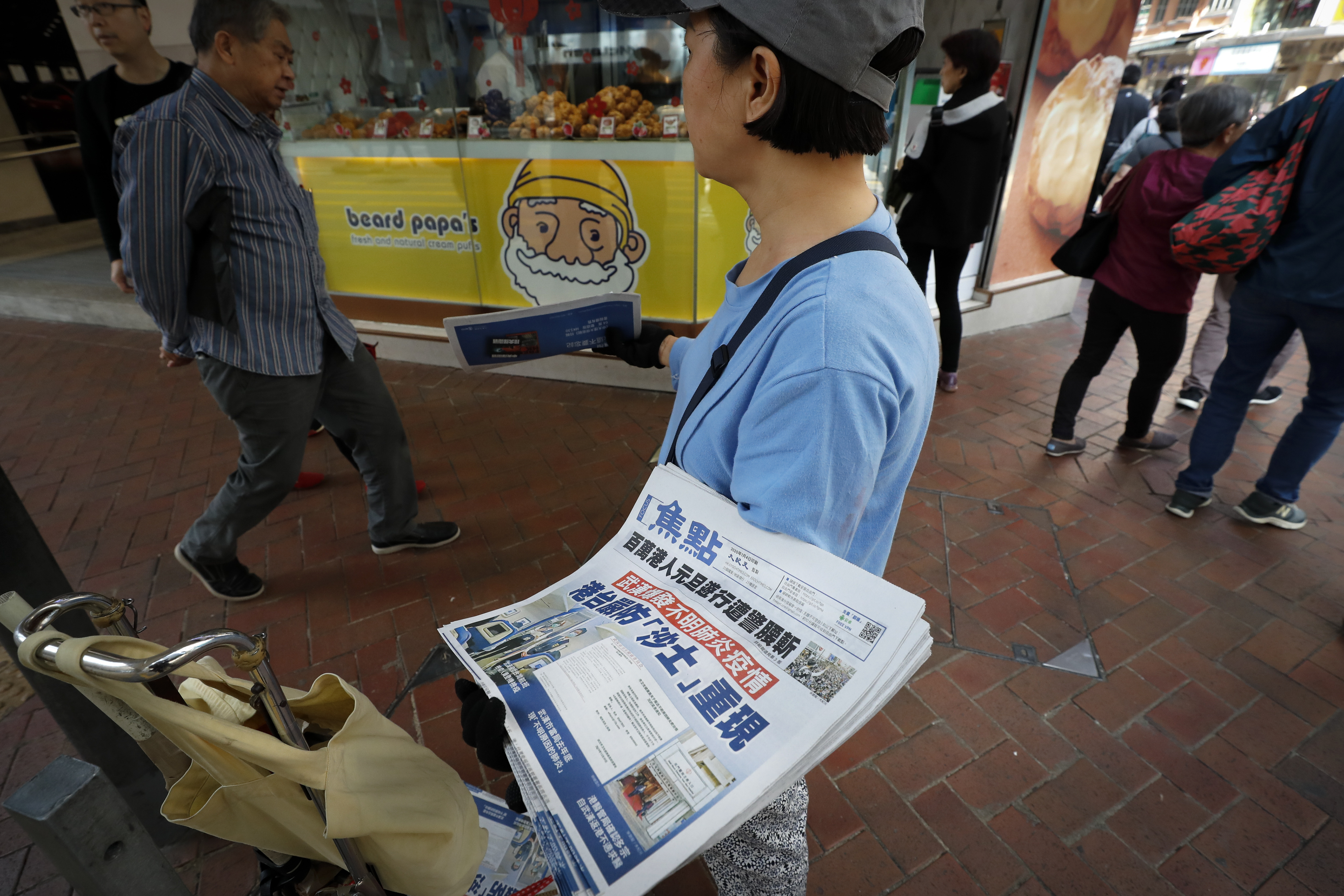Second person dies from SARS-linked virus in China — official

A vendor gives out copies of newspaper with a headlines of “Wuhan break out a new type of coronavirus, Hong Kong prevent SARS repeat” at a street in Hong Kong, Saturday, Jan. 11, 2020. Health authorities in the central Chinese city of Wuhan are reporting the first death from a new type of coronavirus. The Wuhan Municipal Health Commission reported Saturday that seven other people are in critical condition. (AP Photo/Andy Wong)
BEIJING, China — A second person has died in China from a mysterious SARS-linked virus that has stricken dozens and appeared in two other Asian countries, officials said.
Local authorities said a 69-year-old man died on Wednesday in Wuhan, the central Chinese city believed to be the epicenter of an outbreak of a coronavirus from the same family as the deadly SARS pathogen.
The outbreak has caused alarm because of the link with SARS (Severe Acute Respiratory Syndrome), which killed 349 people in mainland China and another 299 in Hong Kong in 2002-2003.
At least 41 people have been hit with pneumonia linked to the new virus in China, prompting authorities in Hong Kong to step up detection measures, including temperature checkpoints for inbound travelers.
The Wuhan health commission said 12 people have recovered and been discharged from hospital, while five others were in serious condition.
Article continues after this advertisementThe man who died had become sick on December 31 and his condition worsened on January 4, with pulmonary tuberculosis and multiple organ functions damaged, the commission said.
Article continues after this advertisementTwo other cases have been detected — in Thailand and Japan — with health managers in both countries saying the patients had visited Wuhan prior to their hospitalizations.
Authorities in Wuhan said a seafood market was the center of the outbreak. It was closed on January 1.
No human-to-human transmission of the virus behind the Wuhan outbreak has been confirmed so far, but the health commission has said the possibility “cannot be excluded.”
Cases outside China
A World Health Organization (WHO) doctor has said that it would not be surprising if there was “some limited human-to-human transmission, especially among families who have close contact with one another.”
The WHO said Thursday that “much remains to be understood about the new coronavirus.”
Not enough was known about it to “draw definitive conclusions about how it is transmitted,” a statement added.
The Wuhan health commission said one man who had been diagnosed worked at Huanan Seafood Wholesale Market, but his wife, who also had the virus, reported “no history of exposure” at the facility.
The woman diagnosed in Thailand had not reported visiting the seafood market, the WHO said on Tuesday. She was reported to be in stable condition earlier this week.
The patient in Japan, who was released from the hospital, had also not visited the market. Japanese officials said it was possible that the man had been in contact with a person infected with the virus while in Wuhan.
The U.S. Centers for Disease Control and Prevention has issued a Level 1 “Watch” alert for travelers to Wuhan, saying they should practice normal precautions and avoid contact with animals and sick people.
Online censorship
The increase in fatalities from the mysterious disease also comes as China prepares for its busiest travel season of the year when millions of people take buses, trains, and planes for Lunar New Year next week.
China has not announced any travel restrictions.
After the second death was reported, online discussion spread in China over the severity of the Wuhan coronavirus — and how much information the government is hiding from the public.
Several complained about censorship of online posts, while others made comparisons to 2003 when Beijing drew criticism from the WHO for under-reporting the number of SARS cases.
“Scarier than panic is treating something too lightly,” wrote a Chinese web-user on Weibo, the country’s Twitter-like social media platform.
“It’s so strange,” wrote another, citing the overseas cases in Japan and Thailand. “They all have Wuhan pneumonia cases but we don’t apart from Wuhan — is that scientific?”
Edited by MUF
For more news about the novel coronavirus click here.
What you need to know about Coronavirus.
For more information on COVID-19, call the DOH Hotline: (02) 86517800 local 1149/1150.
The Inquirer Foundation supports our healthcare frontliners and is still accepting cash donations to be deposited at Banco de Oro (BDO) current account #007960018860 or donate through PayMaya using this link.